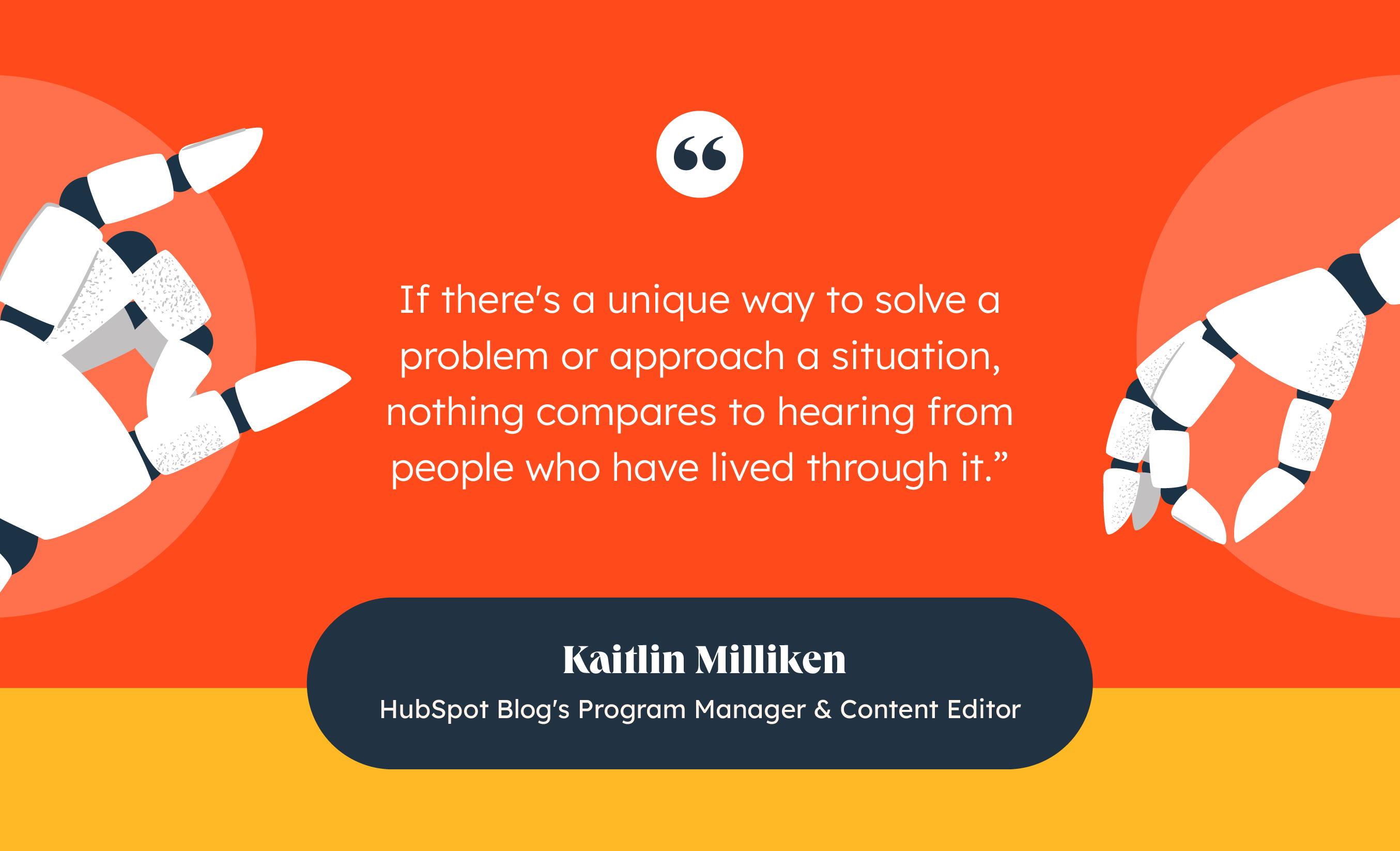Was it Written by AI? How You Can Tell, According to HubSpotters

In school, I learned the basics of good writing — keep it short, concise, and grammatically correct.
By that definition, AI-written content should be good, right? Yet, when I play around with tools like ChatGPT, I notice a few red flags.
Sure, it’s grammatically correct, but it gives off serious “corporate speak” vibes. It follows a logical sequence, but it often goes on lengthy tangents. And while its responses may be accurate, it often lacks a unique perspective.
This isn’t to suggest AI-written content is inherently bad. But if you plan to leverage AI for content creation, it’s important to know where it falls short, and how to fix it.
4 Signs It Was Written by AI
1. It isn’t skimmable.
As a writer, it’s nice to imagine that people hang on to every word I write. The reality, however, is far different.
Gone are the days of leisurely reading the newspaper at the breakfast table. In the digital age, people want information, and they want it quickly.
But if you’ve ever tinkered with an AI-writing tool, you may notice it hasn’t mastered the art of brevity. For example, when I ask ChatGPT to write an intro for an article on how to write better headlines, it generates the following:
This intro isn’t necessarily bad, but it’s a tad wordy and far too long. Now compare it to a blog post from Neil Patel on the same topic:
.png?width=600&height=386&name=Neil%20Patel%20Intro%20(1).png)
See the difference?
Patel starts with an engaging question, immediately piquing our curiosity. He also writes in short, one or two-sentence paragraphs. Both these strategies make content easier to skim and absorb.
2. It’s missing expertise.
Which article would you rather read: “How to Go Viral on TikTok” or “How To Go Viral on TikTok, From 3 Creators Who’ve Done It”?
I’m willing to bet the latter. That’s the power of expertise — it instantly elevates any piece of content with real-world experience.
The problem? AI doesn’t have any experience.
As Kaitlin Milliken, HubSpot Blog’s Program Manager & Content Editor, puts it, “AI chatbots repackage information that we’ve heard a million times before. If you’re looking for a fresh perspective, you’ll want to reach out to a human expert.”
She adds, “Experts have access to the latest trends and more recent data than AI. Plus, they can pull from their real-world experience. If there’s a unique way to solve a problem or approach a situation, nothing compares to hearing from people who have lived through it.”

Besides being an expert (or consulting one), you can weave expertise into your content in other ways.
For instance, here at HubSpot, many of our articles include real-world examples, original data, and “pro tips.” These elements not only enhance the credibility of our content but also …read more
Source:: HubSpot Blog








